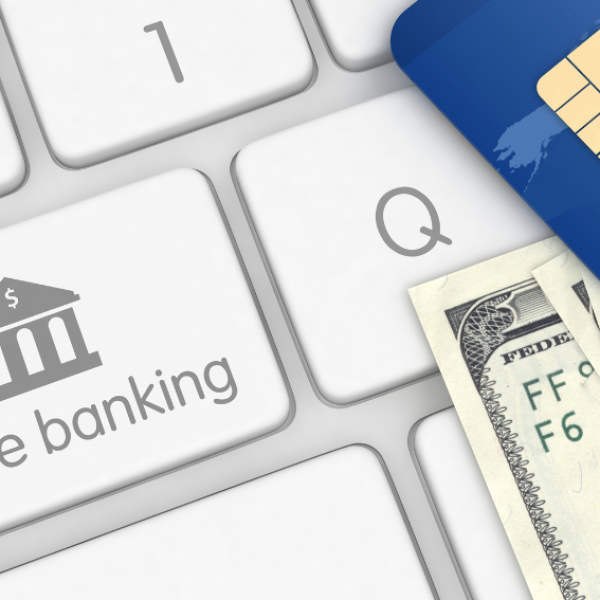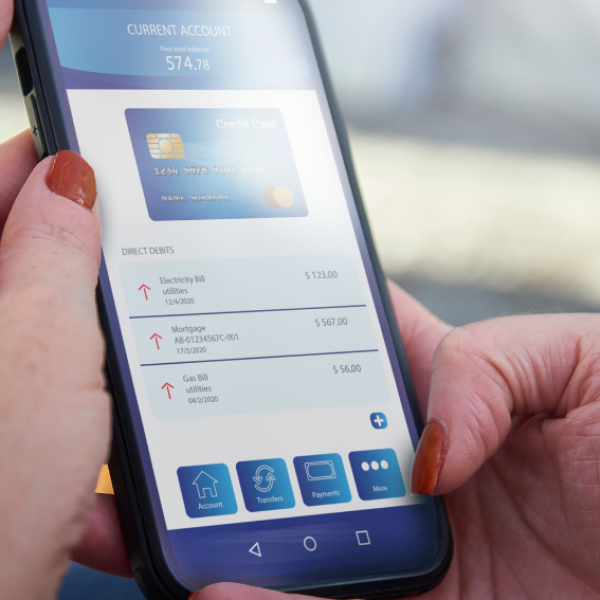In today’s digital marketplace, payment gateways are the backbone of any eCommerce and dropshipping business. Choosing the right payment gateway affects customer experience, conversion rates, and overall sales performance. With numerous options available, finding a gateway that suits your business needs, budget, and customer preferences is crucial.
This article explores the best payment gateways for eCommerce and dropshipping in 2025, examining their features, benefits, and ideal use cases to help you make an informed decision.
In This Article
ToggleUnderstanding Payment Gateways and Their Types
A payment gateway is a service that processes online payments by authorizing transactions between a business and its customers. It ensures secure and seamless transactions, enabling businesses to accept payments from various sources such as credit cards, debit cards, and digital wallets.
Types of Payment Gateways
- On-Site Payments: Transactions occur entirely on the merchant’s site, giving businesses more control over the payment process. Often used by large enterprises, this setup requires high-level security.
- Redirect Gateways: Customers are redirected to a third-party page to complete the payment. These gateways are secure but may lead to a drop in conversion due to the extra step.
- Hosted Payment Pages: Similar to redirects but offer a branded experience. These are ideal for businesses wanting secure payments without complex integration.
Importance of Choosing the Right Gateway
Selecting the right gateway affects your business’s security, customer trust, and ability to handle high transaction volumes. A suitable gateway also reduces cart abandonment, making it essential to choose one that aligns with your business’s needs and customer expectations.
Key Factors to Consider When Choosing a Payment Gateway
Choosing the right payment gateway involves assessing factors like security, fees, supported currencies, and customer support. Here’s what to consider:
- Transaction Fees: Fees vary widely and may include setup costs, transaction fees, and monthly fees. High-volume sellers might prefer gateways with low transaction fees, while smaller businesses might benefit from pay-as-you-go options.
- Security Features: Security is crucial to protect customer data. Look for gateways that offer PCI compliance, fraud detection, and encryption.
- Integration Compatibility: Ensure the gateway integrates smoothly with your eCommerce platform (Shopify, WooCommerce, etc.) and any existing systems.
- Supported Payment Methods and Currencies: Choose a gateway that supports multiple payment methods (credit cards, e-wallets) and currencies if you serve international customers.
- Customer Support: Reliable support is essential in case of technical issues. Look for gateways that offer 24/7 support to avoid disruptions.
Best Payment Gateways for Ecommerce and Dropshipping in 2025
Based on the above criteria, here are the top payment gateways suited for eCommerce and dropshipping businesses.
1. PayPal

PayPal remains one of the most widely used and recognized payment gateways globally, making it a top choice for eCommerce and dropshipping businesses targeting a diverse customer base. Known for its simplicity and security, PayPal allows businesses to accept payments without requiring extensive technical setup.
Its global presence in over 200 countries and support for multiple currencies make it a go-to for businesses seeking to expand internationally.
Features and Benefits
- Global Reach: PayPal’s extensive reach allows it to support transactions across borders. It enables businesses to reach customers globally without worrying about currency or location restrictions. PayPal’s presence across most markets worldwide makes it a trusted name, boosting customer confidence during transactions.
- Multiple Payment Options: In addition to PayPal balances, users can make payments through credit and debit cards, or even bank transfers, offering flexibility that caters to a wide range of customer preferences.
- Buyer and Seller Protection: PayPal’s buyer and seller protection policies add a layer of security. These policies cover transactions against potential fraud or disputes, reducing the financial risk associated with refunds or chargebacks.
Pros and Cons
- Pros: PayPal is user-friendly, widely trusted, and offers multiple payment options, including installment payments for customers in specific regions.
- Cons: The transaction fees can be relatively high, especially for cross-border payments, where currency conversion fees may also apply. Additionally, PayPal’s free accounts have limited support, which may be challenging for businesses needing consistent customer service.
Ideal for
PayPal is ideal for small-to-medium eCommerce and dropshipping businesses aiming to target international markets. Its ease of setup and worldwide recognition make it a suitable option for brands seeking to gain customer trust quickly and expand beyond their local market.
2. Stripe
Stripe is a powerful payment gateway known for its advanced customization options and developer-friendly features, making it highly popular among tech-savvy businesses and larger eCommerce sites. Its extensive API integrations allow developers to create custom solutions tailored to the business’s specific needs.
Stripe’s scalability, along with its support for over 135 currencies, makes it suitable for both local and international businesses aiming to expand.
Features and Benefits
- Advanced Integration: Stripe’s API gives developers extensive control over payment processing. With Stripe, businesses can customize their checkout experience, integrate advanced reporting tools, and incorporate features like invoicing and recurring payments directly within their websites. This level of customization allows for a seamless and branded user experience.
- Subscription Billing: Stripe’s advanced support for recurring payments and subscription management is particularly beneficial for businesses using a subscription model. The platform’s subscription tools include options for discounts, trial periods, and dynamic pricing, which can be adapted based on customer preferences.
- International Payment Support: Stripe accepts payments in over 135 currencies, with built-in conversion features that allow businesses to serve international customers while reducing transaction friction. Additionally, Stripe offers real-time currency conversion, so customers can view prices and pay in their local currency.
Pros and Cons
- Pros: Stripe’s customizable API, multi-currency support, and recurring billing features make it highly versatile, allowing for advanced solutions in eCommerce and dropshipping.
- Cons: Stripe’s setup requires technical knowledge, making it less accessible to businesses without a development team. Additionally, transaction fees can be high for certain payment methods and international transactions, especially for small businesses without high transaction volumes.
Ideal For
Stripe is best for larger eCommerce and dropshipping businesses with dedicated technical resources, or those needing flexible payment options to support complex business models. It’s a great choice for companies looking to offer a tailored checkout experience, manage subscriptions, or scale their business internationally.
3. Razorpay

Razorpay is a popular payment gateway in India, designed specifically to cater to the unique payment preferences and infrastructure of the Indian market. Known for its easy setup and comprehensive dashboard, Razorpay simplifies payments for eCommerce businesses aiming to capture the Indian consumer base.
The platform supports multiple local payment methods, making it ideal for businesses that need to offer a variety of payment options to their customers.
Features and Benefits
- Local Payment Options: Razorpay supports UPI, digital wallets, net banking, and credit/debit cards, making it easy for Indian consumers to use their preferred payment methods. This flexibility allows businesses to cater to a diverse customer base, especially as UPI becomes increasingly popular in India.
- Instant Activation: Razorpay offers a streamlined setup process, with approvals and activation often completed within hours. This allows businesses to start accepting payments quickly, reducing setup delays and improving time-to-market.
- Smart Invoicing: Razorpay includes built-in invoicing tools, allowing businesses to create, customize, and send invoices directly through the platform. This feature is particularly useful for service-based businesses or dropshippers needing to issue detailed invoices for customer transactions.
Pros and Cons
- Pros: Razorpay offers support for popular Indian payment methods, competitive fees, and fast setup, making it convenient for local businesses.
- Cons: Razorpay is primarily limited to the Indian market and lacks some advanced features for international transactions. This can be a drawback for businesses looking to expand beyond India.
Ideal For
Razorpay is perfect for Indian eCommerce and dropshipping businesses targeting local consumers and needing seamless integration with Indian payment options. Its extensive support for UPI, wallets, and net banking makes it a top choice for businesses catering to a domestic audience.
4. 2Checkout (now Verifone)
2Checkout, recently rebranded as Verifone, is a globally recognized payment gateway offering extensive support for international transactions, multiple payment methods, and currencies. Known for its flexibility, 2Checkout is especially suited for eCommerce businesses and dropshippers with an international audience, as it supports multiple languages and localized payment options.
Features and Benefits
- Global Payment Processing: 2Checkout accepts payments from over 200 countries, making it a suitable solution for businesses with a global customer base. Its support for various currencies and languages provides a seamless payment experience for international customers.
- Subscription Billing and Recurring Payments: This gateway includes advanced billing features like recurring payments, making it ideal for businesses with a subscription-based model. 2Checkout’s subscription tools are flexible, allowing companies to offer customizable billing cycles and trial periods to meet customer needs.
- Integrated Fraud Protection: To safeguard transactions, 2Checkout includes fraud detection and prevention tools, which help protect businesses against chargebacks and unauthorized transactions. The platform’s built-in fraud management adds an extra layer of security to each transaction.
Pros and Cons
- Pros: With its support for global payments, fraud protection, and subscription management, 2Checkout is well-equipped for international eCommerce businesses and dropshippers.
- Cons: The gateway’s transaction fees are relatively high for some regions, and its customization options may be limited for small businesses.
Ideal For
2Checkout is ideal for dropshipping and eCommerce businesses targeting a global audience and requiring support for multiple currencies and languages. Its fraud prevention features and subscription management make it particularly valuable for companies with recurring billing models or complex payment needs.
5. Authorize.net
Authorize.net, a well-established payment gateway owned by Visa, is known for its reliability and security. Designed for businesses of all sizes, it provides a suite of advanced features tailored to support high-level security needs, making it a preferred choice for businesses concerned about fraud and chargebacks. The gateway is also highly compatible with a range of eCommerce platforms, allowing for easy integration with most online stores.
Features and Benefits
- Fraud Detection Suite: Authorize.net’s fraud detection suite offers comprehensive tools to protect against fraudulent transactions, including address verification, card verification, and other customizable fraud filters. This feature is critical for businesses looking to minimize chargebacks and secure their transactions.
- Virtual Terminal: The virtual terminal feature allows businesses to accept payments via phone, mail, or fax, expanding their sales channels beyond traditional eCommerce. This capability is especially valuable for service-based businesses or those with call-in order processes, providing flexibility for remote and varied payment methods.
- Recurring Billing: Authorize.net supports recurring payments, making it an ideal choice for subscription-based businesses, memberships, or any service requiring automatic billing. The recurring billing feature is fully customizable, allowing for different billing cycles, subscription periods, and pricing structures, which enhances convenience for businesses and customers alike.
Pros and Cons
- Pros: Authorize.net is known for its high-level security, strong reputation, and flexibility across multiple sales channels, including eCommerce, mobile, and phone orders. It is highly regarded for its reliability, making it ideal for businesses with significant transaction volumes.
- Cons: Monthly fees can be high, which might not be cost-effective for smaller businesses or startups with lower transaction volumes. Additionally, Authorize.net’s limited availability outside North America can be a drawback for international businesses, as it primarily serves US and Canadian markets.
Ideal For
Authorize.net is ideal for medium-to-large eCommerce businesses that prioritize security and need robust fraud protection. Its extensive features make it a good fit for businesses operating in North America, particularly those with high transaction volumes or subscription-based models.
6. Square
Square is a versatile payment gateway known for its ease of use and suitability for small businesses and retail merchants. Originally launched as a mobile payment solution, Square has evolved into an all-in-one platform compatible with both online and offline sales. Square’s flexibility makes it ideal for businesses seeking a streamlined solution that bridges online sales and in-person transactions.
Features and Benefits
- POS Integration: Square’s POS system integration is one of its standout features, allowing businesses to accept payments at both physical locations and online stores. The POS system syncs seamlessly with Square’s eCommerce solution, which helps businesses manage transactions, inventory, and customer data across multiple channels.
- No Monthly Fees: Square operates on a pay-as-you-go model, charging a small fee per transaction instead of a monthly subscription. This makes it accessible for startups, small businesses, and seasonal sellers who may not want the commitment of monthly fees. The lack of fixed costs also allows businesses to scale without added expenses.
- Inventory Management: Square includes built-in inventory management tools, which enable businesses to track stock levels, manage product listings, and receive alerts when items are low in stock. This feature is beneficial for small retailers who need to manage inventory across both online and offline sales channels efficiently.
Pros and Cons
- Pros: Square’s ease of setup, no monthly fees, and multi-channel functionality make it particularly useful for small businesses. Its user-friendly interface allows business owners to get started quickly, while its inventory management and POS integration are beneficial for retail and eCommerce businesses alike.
- Cons: Square’s transaction fees can be higher for small-ticket items, and the platform lacks some advanced features found in other dedicated eCommerce gateways. Additionally, businesses looking for highly customizable online experiences may find Square’s eCommerce features somewhat limited compared to specialized platforms like Shopify or WooCommerce.
Ideal For
Square is an excellent option for small eCommerce and dropshipping businesses that also have a physical presence or engage in offline sales. Its unified solution is ideal for managing sales, payments, and inventory across multiple channels, offering the flexibility and simplicity that small businesses often need.
7. Mollie

Mollie is a European-based payment gateway that is known for its simplicity, affordability, and strong support for local payment methods. With easy integration options, Mollie is popular among businesses across Europe that want an intuitive payment solution with transparent pricing.
Mollie’s focus on the European market makes it a standout choice for small-to-medium businesses looking for a gateway that supports popular local payment methods and operates without hidden fees.
Features and Benefits
- European Payment Methods: Mollie supports a wide range of local payment methods commonly used in Europe, such as iDEAL (Netherlands), SEPA Direct Debit (EU), SOFORT (Germany), Bancontact (Belgium), and more. This extensive support for regional payment options enables businesses to cater to local customer preferences, which can improve conversion rates and customer satisfaction in European markets.
- Transparent Pricing: Unlike some other gateways that charge setup fees or monthly fees, Mollie operates on a per-transaction basis with no additional fees, making it cost-effective for businesses, especially new or small businesses. Transparent pricing allows businesses to budget more effectively without worrying about hidden costs or unexpected charges.
- Quick Integration: Mollie offers pre-built integrations for most major eCommerce platforms, including Shopify, WooCommerce, and Magento, which makes setup simple and efficient. The integration process is straightforward and requires minimal technical knowledge, allowing businesses to get started quickly.
Pros and Cons
- Pros: Mollie is affordable, easy to integrate, and highly user-friendly. Its focus on supporting European payment methods makes it a valuable solution for businesses targeting European customers. The lack of setup or monthly fees is also a major advantage for small-to-medium businesses.
- Cons: Mollie is primarily limited to European markets, making it less suitable for businesses with a global customer base. It also lacks some advanced features that larger enterprises may require, such as multi-currency support and in-depth reporting for international operations.
Ideal For
Mollie is best suited for small-to-medium eCommerce businesses within Europe that need an affordable, easy-to-use payment gateway with strong support for local payment methods. Its focus on simplicity and transparent pricing makes it ideal for businesses looking for a no-fuss solution tailored to European markets.
Conclusion
Selecting the best payment gateway for your eCommerce or dropshipping business in 2025 depends on your target market, budget, and specific needs. For global reach, PayPal and Stripe are excellent options, while Square offers a comprehensive solution for businesses that operate both online and offline. Meanwhile, Razorpay and Mollie are perfect for those focusing on the Indian and European markets, respectively.
Each gateway has unique features and pricing models, so evaluating them based on your business priorities will help you make the right choice.
By aligning your gateway with your business model and customer expectations, you can enhance the shopping experience, reduce cart abandonment, and drive higher conversions.
Frequently Asked Questions
What should I consider when choosing a payment gateway for my eCommerce business?
Key factors include transaction fees, security features, supported payment methods, and integration compatibility with your platform. Consider your target audience’s location and preferences, as well as the gateway’s customer support quality.
Which payment gateway is best for small businesses?
Square and Mollie are great for small businesses. Square has no monthly fees and integrates with POS for multi-channel sales, while Mollie offers affordable, transparent pricing and local payment options across Europe.
Is PayPal a good option for international dropshipping?
Yes, PayPal is widely trusted and supports multiple currencies in over 200 countries, making it ideal for dropshipping businesses targeting international customers. However, consider its higher transaction fees for cross-border payments.








